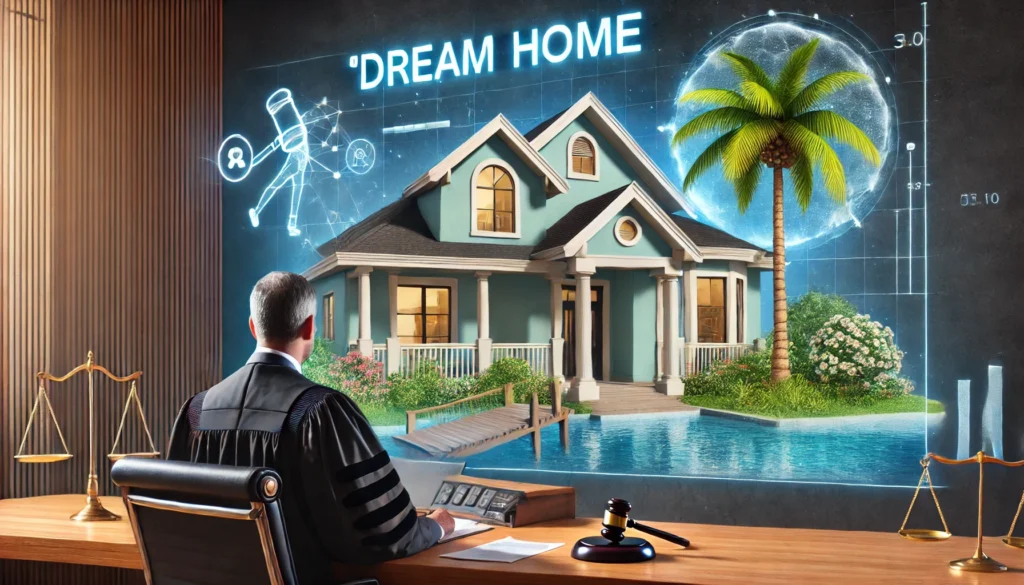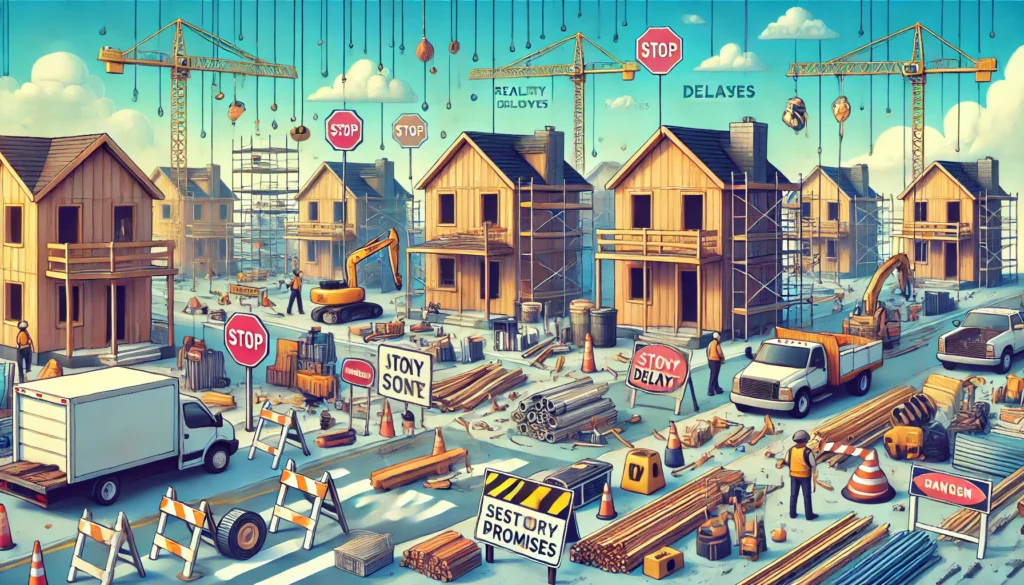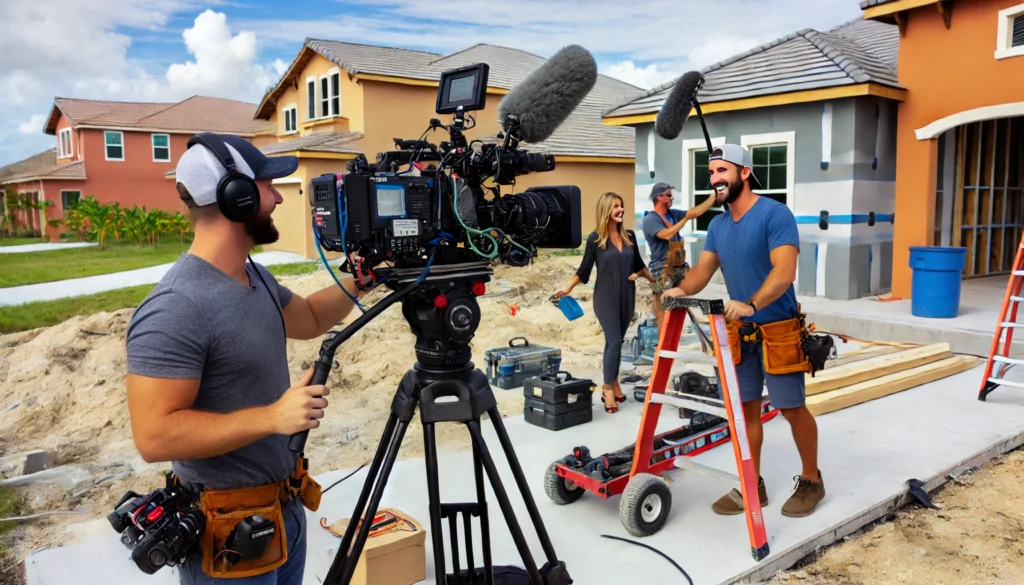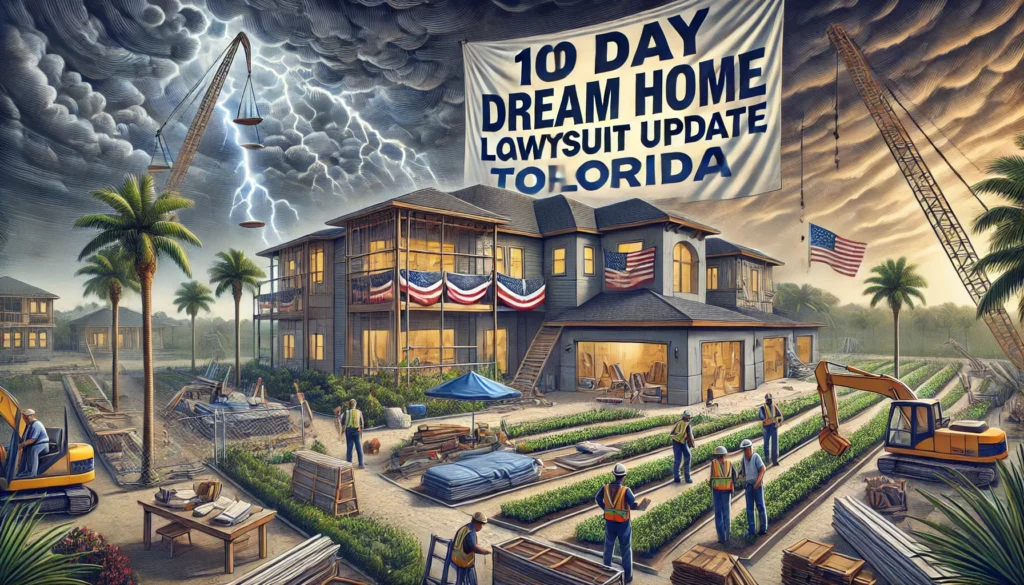100 Day Dream Home, the popular HGTV show hosted by Mika and Brian Kleinschmidt, has recently faced legal controversy in Florida. According to the 100 Day Dream Home lawsuit update today in Florida, homeowners have filed lawsuits alleging delays, poor workmanship, and failure to meet contractual promises. As of January 2025, the case remains unresolved, highlighting the challenges of delivering quality custom homes within such an ambitious 100-day timeframe. This legal battle has sparked public and industry discussions about the feasibility of fast-paced construction projects.
100 Day Dream Home Lawsuit Update Today Florida: What You Need to Know
The 100 Day Dream Home lawsuit update today in Florida sheds light on ongoing legal disputes surrounding the popular HGTV show hosted by Mika and Brian Kleinschmidt. Homeowners involved in the case have alleged significant issues, including delays in completing their homes, concerns about construction quality, and unmet contractual promises.
At the heart of the lawsuit are claims that the promise of delivering custom-built homes in just 100 days was not consistently met. Some plaintiffs report delays extending months beyond the agreed timeframe, which they argue caused financial and emotional strain. Additionally, there have been complaints of poor workmanship, with structural issues and subpar materials cited as major problems.
In response, the show’s hosts and production team have defended their efforts, attributing delays to external factors such as supply chain disruptions and Florida’s unpredictable weather. They maintain that their commitment to quality and customer satisfaction remains their top priority.
As of January 2025, the case remains unresolved. This ongoing legal battle has raised broader questions about the feasibility of constructing quality homes on tight schedules and the ethical responsibilities of reality TV programs. The lawsuit continues to be closely watched by fans, industry experts, and homeowners alike, as its outcome may influence future practices in both the construction and entertainment industries.
Background of the Lawsuit
The lawsuit against “100 Day Dream Home” centers on claims by homeowners who were featured on or worked with the show. The key issues include:
Delays in Completion:
- Several plaintiffs claim their homes were not completed within the promised 100-day timeframe.
- In some cases, delays stretched into several months, causing significant inconvenience and additional costs for the homeowners.
Quality Concerns
- Allegations include structural problems, improper installations, and substandard materials.
- Homeowners argue that the focus on speed compromised the quality and durability of their homes.
Breach of Contract
- Some homeowners allege that the show did not meet its contractual obligations, resulting in financial and emotional stress.
The show’s hosts and production team have defended their practices. They argue that delays were caused by factors beyond their control, such as:
- Supply Chain Disruptions: Global shortages of building materials have significantly impacted timelines.
- Unpredictable Weather: Florida’s climate, including heavy rain and hurricanes, has posed challenges for construction schedules.
Despite these defenses, the plaintiffs maintain that they were not adequately informed of potential risks or delays, which has become a focal point of the legal battle.
Key Developments in the Lawsuit
As of now, the lawsuit remains unresolved, with both sides presenting their arguments in court. Here are the latest developments:
Ongoing Legal Proceedings
- No settlement or final ruling has been reached, and the case continues to unfold.
Impact on the Show
- The lawsuit has brought increased scrutiny to the show’s 100-day premise.
- Production changes may be required to address the concerns raised in the lawsuit.
While the legal process moves forward, the controversy has fueled debates about the practicality of building quality homes under such tight deadlines.
Public Reactions
The lawsuit has sparked mixed reactions from the public and industry experts:
Fans of the Show
- Many fans continue to support Mika and Brian, appreciating their dedication and creativity.
- Some view the lawsuit as an unfortunate outcome of unrealistic expectations set by the homeowners themselves.
Critics
- Skeptics question whether the 100-day goal is achievable without sacrificing quality.
- They argue that the lawsuit reveals deeper issues within the fast-paced reality TV homebuilding model.
Industry Professionals
- Construction experts have weighed in, noting the difficulties of balancing speed, quality, and budget.
- Some believe the lawsuit could lead to broader discussions about ethical practices in the industry.
Implications of the Lawsuit
This case has significant implications for several groups:
Homeowners
- The lawsuit highlights the importance of clear communication and transparency in homebuilding projects.
- Homebuyers are reminded to thoroughly vet builders and contracts before agreeing to ambitious timelines.
The Show and Its Hosts
- Mika and Brian face reputational challenges as they navigate the legal and public scrutiny.
- The lawsuit may prompt changes to the show’s format, including adjustments to the timeline or increased transparency about potential delays.
Reality TV and the Construction Industry
- The case has raised questions about the ethical responsibilities of reality TV shows that feature real-world projects.
- Other programs may face similar scrutiny, leading to changes in how construction projects are portrayed and managed on screen.
Lessons from the Case
The legal issues surrounding “100 Day Dream Home” offer valuable lessons:
Consumer Awareness
- Buyers should be cautious of projects with tight deadlines and understand the potential risks involved.
- Proper due diligence can help prevent disputes and ensure realistic expectations.
Construction Practices
- Builders must find ways to balance efficiency with quality, particularly in regions like Florida, where environmental challenges are common.
Legal and Regulatory Oversight:
- Stronger regulations may be necessary to protect consumers and ensure that construction projects meet agreed-upon standards.
Conclusion
The 100 Day Dream Home lawsuit update today in Florida underscores the difficulties of achieving quality construction under strict deadlines. While the legal proceedings remain unresolved, the case has already initiated significant discussions about the importance of transparency, ethical practices, and maintaining high standards in both the construction industry and reality TV. As homeowners, hosts, and the industry await a resolution, this case could reshape how ambitious homebuilding projects are approached and managed, setting new standards for future projects.
FAQs
What is the main issue in the 100 Day Dream Home lawsuit?
The lawsuit alleges delays, poor construction quality, and failure to meet contractual promises by the show.
Have Mika and Brian Kleinschmidt responded to the allegations?
Yes, they attribute delays to supply chain disruptions and weather challenges, defending their construction practices.
Is the lawsuit affecting the production of the show?
While production continues, the lawsuit has brought scrutiny, and potential changes to the format may occur.
Can homes truly be built in 100 days without quality issues?
Experts say it’s possible but highly challenging, especially with external factors like weather and material shortages.
What lessons can homeowners learn from this case?
Homeowners should thoroughly vet builders, set realistic expectations, and ensure clarity in contracts to avoid disputes.
Article Recommendations
Port St. Lucie Mesothelioma Lawyer Vimeo: A Victim\u2019s Guide to Finding Legal Help and Resources
MyLawyer360.com: Simplifying Legal Guidance and Assistance
Above Ground Pools Laws Boone Iowa: What Homeowners Need to Know
Italian Association of Legal Clinics: Bridging Education and Justice




